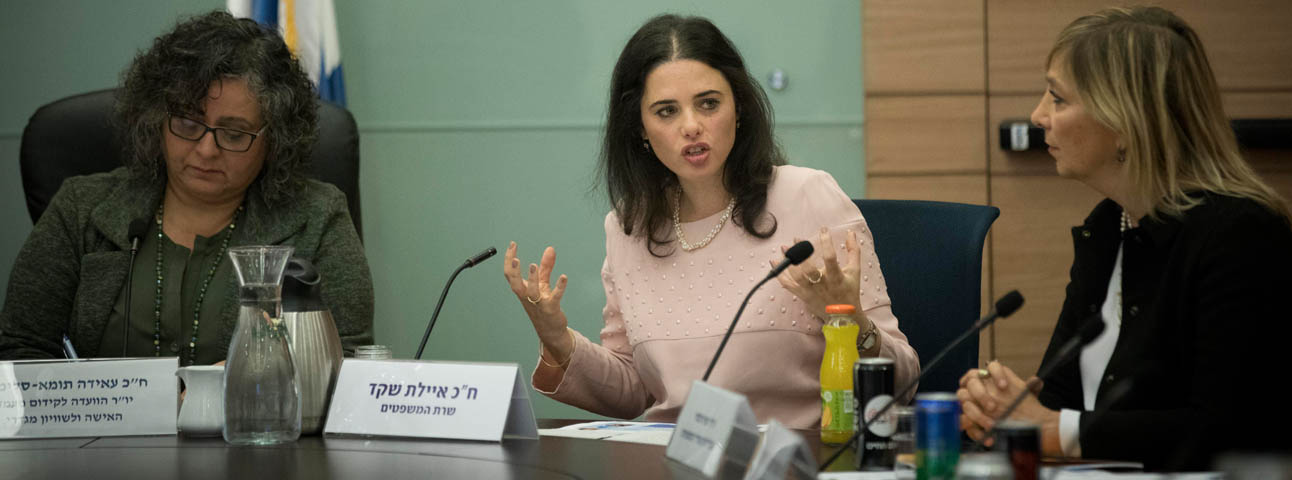Women Representation in the 23rd Knesset
After the party lists have been submitted Dr. Assaf Shapira analyzes expected representation of women in the 23rd Knesset based on the September 2019 elections.

Flash 90
| List | Anticipated # of party’s seats in the Knesset | Anticipated places of women’s seats in the Knesset | Anticipated % of women in the Knesset | Women’s Ranking Index (0-100) |
| Labor-Gesher-Meretz | 11 | 2, 4, 6, 10 | 36% | 39 |
| Blue and White | 33 | 7, 10, 13, 15, 16, 17, 23, 24, 25, 31 | 30% | 29 |
| Yamina | 7 | 3, 7 | 29% | 21 |
| Likud | 32 | 6, 10, 18, 23, 26, 29, 30, 31, 32 | 28% | 17 |
| Joint List | 13 | 5, 8 | 15% | 16 |
| Yisrael Beitenu | 8 | 5 | 12.50% | 11 |
| Shas | 9 | - | 0% | 0 |
| UTJ | 7 | - | 0% | 0 |
The Women’s Ranking Index analyzes both the percentage of women in realistic slots likely to be filled in the lists as well as their relative place on the party list. The higher up women are placed on a party’s list, the higher the index for each party. A score of 0 means that there are no women on the list and 100 would mean that there are no men on the list. 50 would represent complete gender equality between men and women.Additional reading: Rahat, Hazan and Katz, “Democracy and Political Parties: On the Uneasy Relationships between Participation, Competition and Representation,” Party Politics 14 (6) (2008): 679
